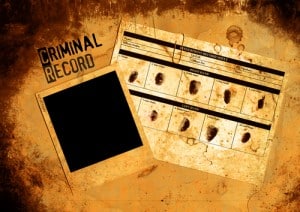I don’t want my criminal record to follow me, can I get an expungement?
If you do the crime, you do the time, as the saying goes. But when you walk out of the prison, what happens next? It’s relatively easy to agree that if you are charged and convicted for a serious crime such as kidnapping or manslaughter that you may continue to face a stigma after you serve your time, but what if it is your first and only offense for writing a bad check? Even worse, what happens if the offense was a single slip up as a teenager? The hard facts are that unless you qualify for an expungement or a pardon your criminal record may follow you around, and hold you back, for the rest of your life.
Lost opportunity
In the midst of continued job loss, with over six million jobs lost since December 2007, there is increased competition and employers are able to be picky about who they chose to fill any open positions. Every single job application that I have ever seen includes a provision that specifically asks you if you have ever been convicted of a crime. Many applications promise that a conviction may not be held against you and that every conviction will be reviewed based upon the individual circumstances, but is that really the case? With so many people competing for a single position, how can an employer overlook this when the next qualified candidate has an impeccable record?
With that being said, if you have been convicted are you tempted to plead ignorance and leave this section blank? These applications also say that if you are hired and anything in your employment application is found to be inaccurate, you will be terminated.
Governor Mark Sanford and the South Carolina legislature recently reexamined your entitlement to an expungment. Changes to the former act include:
• An increase in the amount an expungement will cost to $250.00.
• Under S.C. Code Ann 22-5-910, you may now seek an expungement for a first offense conviction provided it does not carry a penalty of not more than thirty (30) days imprisonment or a fine of Five Hundred ($500) Dollars or both, three years after the date of the conviction.
• If your case was dismissed in Summary Court by a Summary Court Judge after June 2, 2009, an order for expungement will automatically be prepared by that Judge at no cost to the Defendant.
• The cost of the expungement will be waived if you were a defendant in General Sessions court and your charges were dismissed, not prosecuted, or you were found not guilty. (This does not apply if your charge was dismissed as a result of a plea agreement).
• The waiting period to request an expungement for a youthful offender conviction is now 5 years as opposed to 15.
Back to our example. Under the current South Carolina law, if you are charged with writing a bad check, it is your first offense, and the amount is less than 1,000, you may apply for an expungement one year after your conviction provided that it is your first offense, you have never received an expungement before, and you have not been charged with any other crimes. Does the one year waiting period serve its purpose or keep you from getting a job, cause additional financial pressure and make it more likely for you to commit another crime?
So what do you think? Is this fair, or should we all be taking a closer look at the way a simple conviction can follow you for the rest of your life?
For more information regarding how to determine whether you are entitled to an expungement, please click here.


